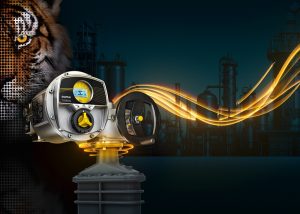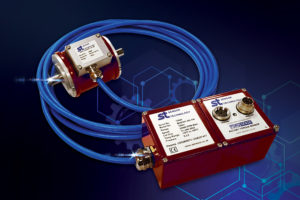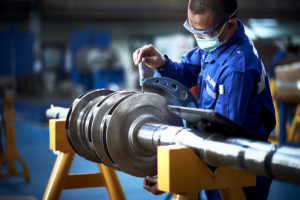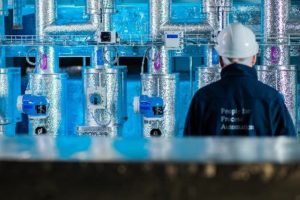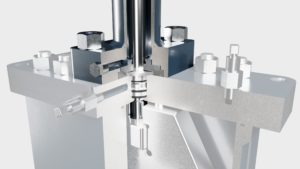Special Test Rig Technology Analyses Long-Time Performance of Pumps and Valves
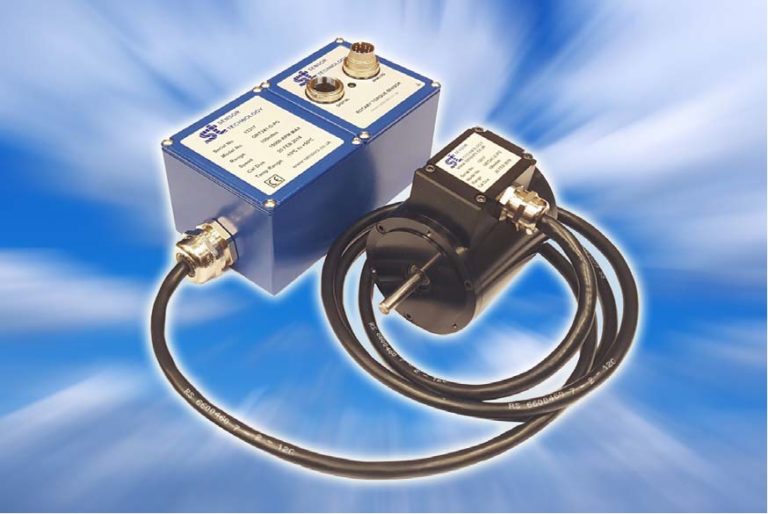
Pump and valve innovator finds a test rig technology that talks the torque. (Image source: Sensor Technology Ltd.)
An inter-generational commitment to advancing science and engineering has seen Bifold transform from a 19th century mining lamp maker into a leading manufacturer of instrument valves and accessories, piping valves and pumps for the oil, gas and wider industrial markets. It has particular expertise in subsea and wellhead control systems and has also developed market leading technology in areas such as solenoid valves with ultra-low power requirements.
Its corporate development is just as impressive as its technical advancements. Over the last 10-15 years it has consistently grown profits by 50% a year, and is on course to clear £33m this year. During this period it has moved into bespoke premises, created about 250 high value jobs, developed new products and technologies and entered high tech markets around the world. Today 95% of its output is exported. By using the power of computer aided design many of Bifold’s products are built to custom designs, yet they are produced to very short lead times thanks to the efficiency of internet communications. To maintain this standard, sample products and components are comprehensively tested so that their reliability and capabilities are never in doubt.
Bifold is as innovative in developing its test regimes as it is in advancing its product technologies and business systems. So when it wanted to assess the effects of wear on its long-life valves it set about designing a special test rig. Engineer Andrew Laverick recalls: “We wanted to measure the power required to operate the valve to see how it changed over time and with long term use. It was clear that the best way to do this was to measure the torque input over an extended period.”
“We were open to any design concept for the test rig, but soon found ourselves gravitating towards a TorqSense solution because the Sensor Technology engineers were so helpful and really knowledgeable about test rigs.”
TorqSense transducers lend themselves to test rig uses because they are noncontact measuring devices. Attached to the surface of the transducer shaft are two Surface Acoustic Wave (SAW) devices, when torque is applied to the shaft the SAWs react to the applied strain and change their output. The SAW devices are interrogated wirelessly using an RF couple, which passes the SAW data to and from the electronics inside the body of the transducer.
Sensor Technology’s Mark Ingham explains: “All you have to do is set up a TorqSense transducer in the test rig and fire it up. The SAW frequencies reflected back are distorted in proportion to the twist in the test piece, which in turn is proportional to the level of torque. We have some clever electronics to analyse the returning wave and feed out torque values to a computer screen.
“TorqSense has been used on many test rigs over the years and I was delighted to hear the Bifold engineers say how easy it is to use and how robust the software is.” Laverick again: “As a test engineer you are almost resigned to long set up procedures and software that falls over at the drop of a hat. But Sensor Technologyhas designed these problems out of their TorqSense equipment, with the result that we were able to complete our long term test procedures with the minimum amount of fuss and heartache and well within the allotted time schedule.”
In fact Bifold has since bought a second TorqSense which is being fitted to a new test rig used to assess the performance of mission critical chemical injection pumps, as used at oil and gas wellheads and on process pipelines.
“This project is proceeding well,” says Laverick, “and is allowing us to further develop our abilities to quickly provide bespoke equipment for ultra demanding applications, safe in the knowledge that it will perform faultlessly over a long working life.”
Source: Sensor Technology Ltd

